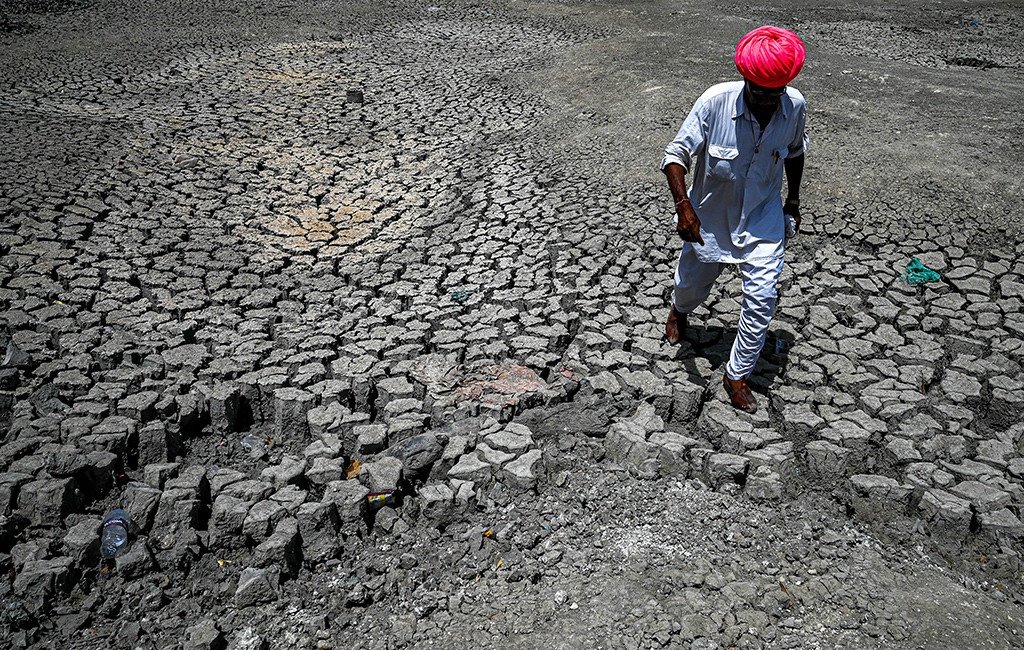July hottest month in 120,000yrs, Bangladesh braces for impact
Study reveals, July 2019 currently holds record for warmest July; July 2023 likely to surpass it by approximately 0.2°C; Need to reduce fossil fuel usage.

According to a recent analysis by German scientist Dr Karsten Haustein from Leipzig University, July is projected to be the hottest ever recorded.
A press release issued on Friday, July 28, it is possibly the warmest in the last 120,000 years. The average temperature is expected to be about 1.5°C higher than before human activities like burning coal, oil, and gas led to global warming.
July 2019 currently holds the record for the warmest July, but July 2023 is likely to surpass it by approximately 0.2°C. This indicates that July is on track to set a new global temperature record.
The continuous rise in temperatures and worsening extreme weather can only be mitigated by significantly reducing fossil fuel usage and achieving net-zero emissions worldwide.
The recently published data from the Copernicus Climate Change Service (C3S), supported by the European Union, has revealed that the initial three weeks of July mark the hottest such period ever recorded.
The World Meteorological Organization (WMO) reported that July 6, in particular, stands as the hottest day on record, closely followed by July 5 and 7. These findings surpass the previous record set in August 2016 and underscore the escalating intensity of global temperatures.
Dr Karsten Haustein, who conducted the analysis, said, “Not only will it be the warmest July, but the warmest month ever in terms of absolute global mean temperature. We may have to go back thousands if not tens of thousands of years to find similarly warm conditions on our planet. The record comes as El Niño has just been declared in the tropical Pacific.”
He added, “While contributing to the warmth, the fundamental reason for why we are seeing such records is the continued release of vast amounts of greenhouse gases by humans. Since the effects of El Niño only fully emerge in the 2nd half of the year, June – and now July – are likely followed by more record warm months up until at least early 2024.”
Dr Zachary M Labe, climate scientist at Princeton University said, “July is likely the hottest month in our historical records. This is no surprise. We are very much experiencing the reality of decades of predictions from scientists warning that temperatures are rapidly rising due to human-caused climate change.”
He further said, “The impacts and consequences are being felt by communities and ecosystems around the world, especially for the most vulnerable. Without a reduction in the emission of greenhouse gases, the heat and subsequent risks will unfortunately continue to amplify.”
According to the recent report of Intergovernmental Panel on Climate Change (IPCC), human activity is responsible for all of the warming that has been experienced since the mid-19th Century. “The likely range of human-induced change in global surface temperature in 2010–2019 relative to 1850–1900 is 0.8°C to 1.3°C, with a central estimate of 1.07°C, encompassing the best estimate of observed warming for that period.”
The IPCC also makes clear that fossil fuel use is the main factor driving global warming: “In 2019, around 79% of global GHG emissions came from energy, industry, transport and buildings, and 22% came from agriculture, forestry and other land use. CO2 emissions reductions from efficiency measures are dwarfed by rising emissions in multiple sectors.”
According to the IPCC, current policies for cutting emissions would lead to a level of warming, nearly 3°C, that would threaten food and water security, increase ill-health and deaths, flood coastal communities, destroy ecosystem and lead to cascading and interacting disasters.
Food production and food security will be threatened by even a small amount of additional warming, which will cause increases in the severity and frequency of heatwaves, droughts and floods, along with sea-level rise.
Heat stress from continued warming is projected to reduce labour capacity by 30–50% in Sub-Saharan Africa and Southeast Asia.
A recent review highlights how powerful interests have discredited climate science and worked to maintain fossil fuel demand and supply. Tactics include pre-emptive bans on fossil gas phase-outs, greenwashing, and lobbying against climate policies. Industry-backed initiatives, like carbon capture and bioenergy, have often fallen short of delivering meaningful results.
Decades of insufficient action on climate change have led to avoidable emissions, with vested fossil fuel interests playing a significant role in delaying the transition to cleaner alternatives.
Moreover, the impacts of climate change will increasingly occur at the same time and interact with each other and with other risks, with increasingly dangerous consequences. If temperature rise passes 1.5°C, entire ecosystems will be irreversibly lost. The extinction risk for unique and threatened species will be at least 10 times higher if temperature rise continues to 3°C.
The temperature rise we are experiencing today was predicted by climate scientists decades ago, emphasizing the urgent need to shift away from fossil fuels and embrace renewable energy sources.
Christiana Figueres, UN climate chief 2010-2016 mentioned: “The much-used term “unprecedented” no longer describes the horrific temperatures we are experiencing. G20 nations are confronted with a dangerous reality they must decisively address with policies to accelerate the deployment of renewables and prudent phaseout of fossil fuels. One third of global electricity can be produced by solar and wind alone, but targeted national policies have to enable that transformation. Or we all scorch and fry.”
Dr Joyce Kimutai, climate scientist at the Grantham Institute and Alternate IPCC Focal Point for Kenya mentioned, “As the world witnesses one of the hottest months ever, extreme events like heatwaves, floods, and droughts are increasing in intensity and magnitude, causing havoc across the globe. This should serve as a compelling wake-up call for all of us. We need to shift the conversation to what needs to happen urgently this year. As we approach COP28, it is crucial that we prioritize addressing loss and damage caused by climate change and take decisive actions to drastically cut emissions.”





